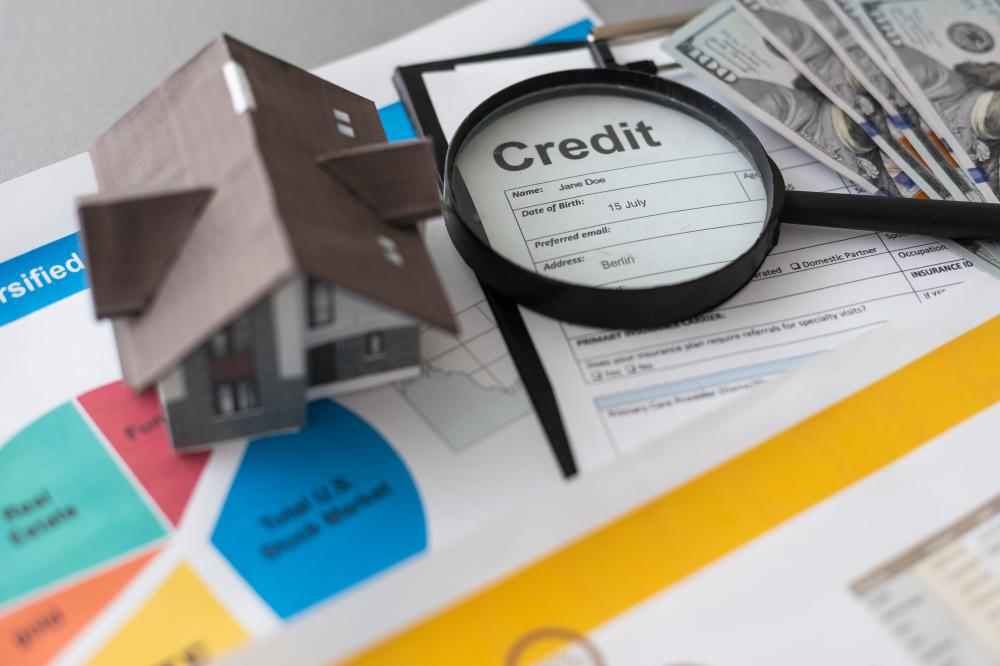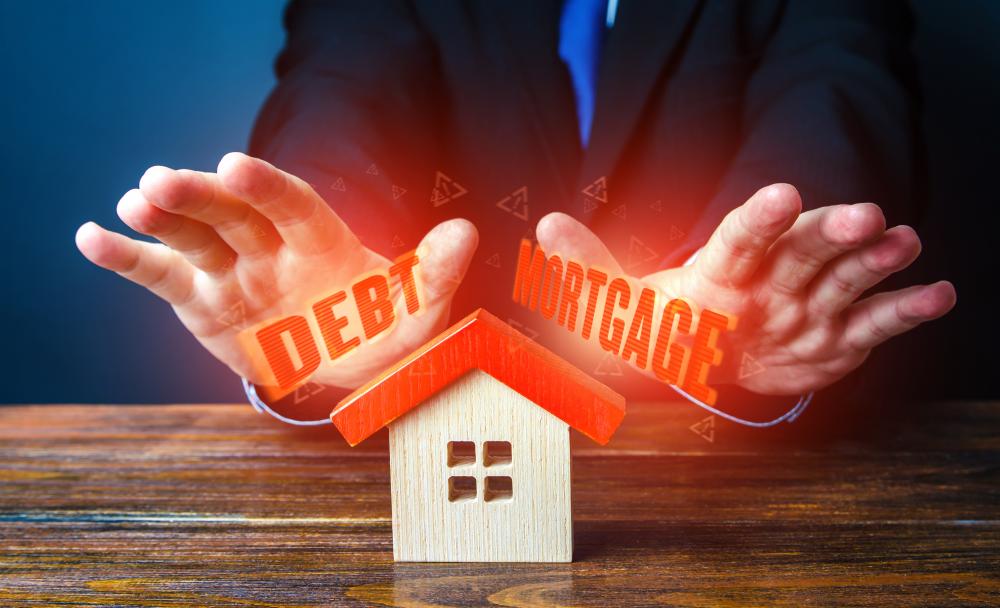
Bad credit isn't just a number; it's a situation that many Calgarians find themselves in, often through no fault of their own. Life throws curveballs - unexpected medical bills, job loss, or simply financial mistakes we've made in our younger years. These can all lead to a credit score that's less than stellar. But it's important to remember that having bad credit doesn't mean you're out of options, especially when it comes to securing a mortgage in Calgary.
When you're looking at a bad credit mortgage Calgary, it's crucial to approach the situation with knowledge and understanding. The truth is, obtaining a mortgage with bad credit is challenging but not impossible. Lenders and mortgage brokers, like myself, have seen it all and are prepared to work with you to find a solution that fits your unique financial situation.
I've worked with many clients who believed their dream of homeownership in Calgary was out of reach due to their credit history. Yet, with patience and the right strategy, we've been able to navigate through the complexities and secure financing that works for them. It's all about knowing where to look and how to present your case effectively.
High-Risk Lenders:
Lenders who specialize in high-risk mortgages are more willing to work with individuals with bad credit. Yes, the interest rates might be higher, but it's a viable option for securing a mortgage and taking the first step toward improving your financial situation.
Private Lenders:
Another option is turning to private lenders. These can be individuals or organizations willing to loan money outside of the traditional banking system. While the rates can be higher, they offer more flexible terms and are often open to working with those who have bad credit.
Credit Improvement Programs:
Before you resign yourself to higher rates, consider working on improving your credit. Simple steps can have a significant impact, such as paying down existing debts, making current payments on time, and avoiding new credit inquiries. Improving your credit score can help you secure more favorable mortgage terms in the future.
In my years as a Calgary Mortgage Broker, I've seen firsthand the stress and frustration that comes with trying to secure a mortgage with bad credit. Yet, I've also witnessed the relief and joy when a client gets the keys to their new home. It's not just about finding a lender willing to take a risk; it's about creating a partnership between the borrower and lender, built on transparency and trust.
One memorable case involved a young couple with bad credit due to past financial missteps. They were eager to purchase their first home but felt defeated by their credit history. Through a tailored approach, focusing on improving their credit score and saving for a larger down payment, we were able to secure a mortgage with a specialized lender. It was a true testament to what can be achieved with perseverance and the right guidance.
The journey to securing a bad credit mortgage in Calgary begins with understanding your current financial situation in-depth. It's not just about your credit score; lenders will look at your total debt service ratio, your employment history, and your down payment.
Next, it's essential to set realistic expectations regarding the interest rates and terms you may qualify for. High-interest rates can significantly impact your monthly payments and long-term financial health, so it's crucial to consider all your options carefully.
Working with a mortgage broker who has experience in bad credit situations can make all the difference. As someone who understands the ins and outs of the Calgary mortgage market, I can offer insights and access to lenders that you might not find on your own. More importantly, I'm here to advocate for you, ensuring that you're treated fairly and that the mortgage you secure is one that you can manage - not just today, but for the life of the loan.
Securing a bad credit mortgage Calgary is undoubtedly challenging, but with the right approach and support, it's possible. Whether through traditional lenders, high-risk options, or private financing, there are ways to achieve your dream of homeownership. Remember, it's about more than just getting a mortgage; it's about setting yourself up for financial success in the future.
If you're in Calgary and struggling with bad credit, don't lose hope. With customized advice and dedicated support, you can navigate the mortgage process and find a solution that works for you. Let's take the first step together towards securing your home and financial future.

Interestingly, it's a question I often encounter in my practice. While a 500 credit score is indeed low, it doesn't entirely shut the door on the possibility of obtaining a mortgage. Specific lenders, particularly those specializing in high-risk mortgages, may consider applicants with this credit score. However, it's crucial to understand that the terms, particularly the interest rates, will be significantly less favorable than those available to individuals with higher credit scores. It's part of a lender's risk management strategy. In personalized situations like these, I recommend exploring ways to improve one's credit score while also considering alternative financing options such as private lenders. Remember, persistence and informed decision-making are crucial.
Buying a house in Calgary--or anywhere, for that matter--generally requires a credit score of at least 620 to secure a mortgage from traditional lenders. This threshold serves as a baseline for what many lenders deem as 'acceptable' credit risk. However, it's vital to highlight that the higher your credit score, the better the terms, and interest rates you can expect. For those who might not meet this requirement, there's still hope through alternative lending routes, such as high-risk or private lenders, although the financial terms will differ. As part of my commitment, I work closely with clients to explore all possible avenues, ensuring they can make an informed decision suited to their situation.
In reality, there isn't a one-size-fits-all answer to this question, as different lenders have varying thresholds. However, some high-risk lenders might go as low as 500 but expect the terms to reflect the increased risk they're taking. On the personal front, I've had clients who, even with low scores, have successfully obtained mortgages. It involves a combination of looking at the right lenders, improving other financial aspects, and sometimes opting for specialized programs designed to help those in unique situations. The journey might be more complex, but the door is not closed.
Yes, obtaining a mortgage with bad credit is indeed possible. The key lies in understanding which lenders are open to working with individuals in these situations and how to present your case effectively. Whether it's through high-risk lenders, private lenders, or even exploring government-backed programs designed to help first-time homebuyers, there are options. My role as your mortgage broker is to guide you through these options, helping you navigate the complexities of the mortgage landscape to find a solution that aligns with your financial situation and homeownership goals.
Improving your credit score before applying for a mortgage can significantly impact the terms of your loan, including the interest rate, which directly affects your monthly payments and the total amount paid over the loan's lifetime. A higher credit score not only opens up more lending options but can also lead to more favorable financial terms. This preparation might involve paying down existing debt, ensuring all bills are paid on time, and avoiding any new credit inquiries in the lead up to your mortgage application. The effort to improve your credit score is an investment in your financial future.
As a mortgage broker, my role transcends simply finding you a loan. It's about understanding your unique financial situation, your goals, and the obstacles you face--like bad credit. With this understanding, I can guide you through the maze of available options, from high-risk lenders to specialized programs for those with less-than-ideal credit scores. Additionally, I provide advice on improving your financial standing and navigating the mortgage application process to secure the best possible terms. This tailored approach not only helps in securing a mortgage but also sets the groundwork for better financial health in the future.
For first-time homebuyers with bad credit, the journey to homeownership might seem daunting, but there are actionable steps you can take to make your dream a reality. Firstly, understanding the importance of your credit score and taking steps to improve it can make a significant difference. Secondly, saving for a larger down payment can also help offset the perceived risk lenders might have. Additionally, exploring all available options, including government-backed programs designed for first-time buyers, can provide paths to homeownership not initially considered. Remember, each situation is unique, and with the right strategy and support, homeownership is within reach, despite bad credit.
Calgary AB T2J5J5